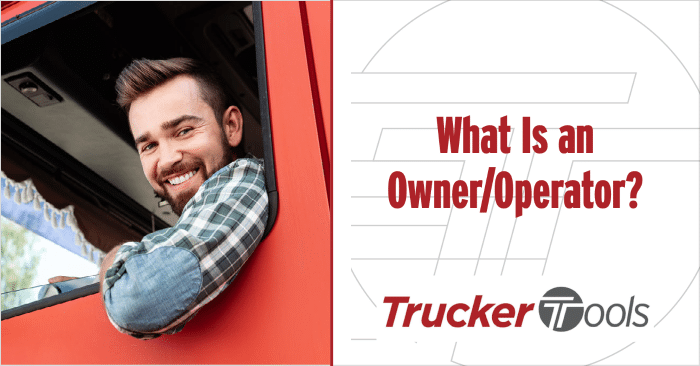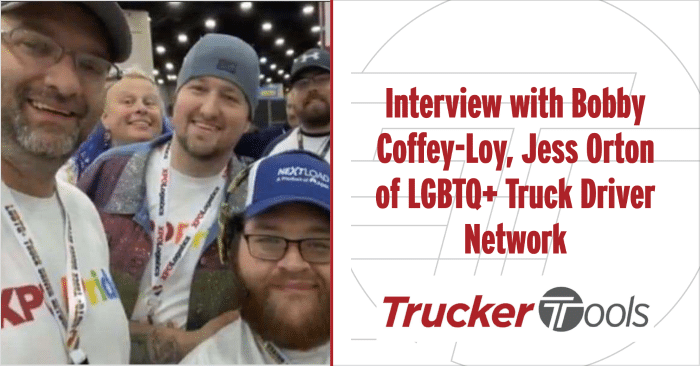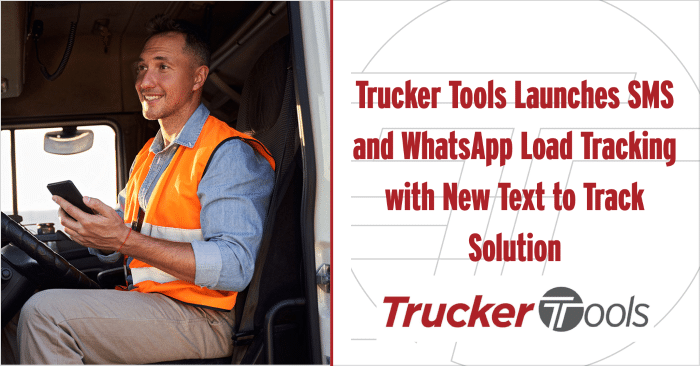In the business world, some small business owners also are in charge of the day-to-day operations of that business. These business owners who wear the dual hats of ownership and operations are referred to as owner/operators. In the trucking business, an owner/operator is an individual who not only drives their big rig, but who also runs all aspects of the business itself. These solopreneurs are one part driver and one part entrepreneur. An owner/operator in the trucking industry has total control over what types of goods they transport, which shippers or brokers they work with, and when and where they work.
The Rise of the Owner/Operator in the Trucking Industry
In 1980, the Motor Carrier Act was enacted, deregulating the trucking industry and making it easier for the owner/operator model to flourish. Prior to the law’s enactment, most ground transportation was handled by large motor carrier companies. Today, the Owner-Operator Independent Drivers Association estimates that approximately 400,000 truck drivers in the United States and Canada are owner/operators. O.O.I.D.A. estimates that 350,000 of those owner/operators are located in the United States.
Some owner/operators run under their own DOT motor carrier operating authority, while others contract with trucking companies to run under the trucking company’s authority. When an owner/operator runs under a trucking company’s authority, they may use the company’s equipment, lease equipment from the trucking company or use their own equipment. When an owner/operator holds their own DOT authority, they are completely independent and can function as for-hire carriers.
Owner/Operator vs. Company Driver
A 2022 study from the American Trucking Associations found that of the 3.5 million truckers in the United States, 1.8 million are employed by a trucking company. These truckers who drive a commercial truck for a trucking company are often referred to as company drivers. Unlike an owner/operator, a company driver is an employee of the trucking company for which they transport goods.
Owner/Operator Pros and Cons
One of the greatest benefits of being an owner/operator is that owner/operators often earn higher salaries when compared with company drivers. An owner/operator keeps 100 percent of the payment from the shipper or freight broker for transportation services provided. As an owner/operator, you also can offer your services to anyone, including directly to shippers. An owner/operator can decide when and where they’ll transport shipments and what hours they’ll drive. Most successful owner/operators say they love being their own bosses and the freedom that comes with being self-employed.
One of the possible negatives associated with working as an owner/operator is that you’re responsible for maintenance and repairs on your truck. In fact, an owner/operator is responsible for all of the expenses associated with running a small trucking business. That includes fees and licenses, insurance, fuel, meals, service and more. All decisions also fall to the owner/operator, which can be a negative for some. As an owner/operator, you must make a host of decisions, from deciding whether to self-dispatch or hire on staff to negotiating contracts with shippers and brokers.

Company Driver Pros and Cons
When you work as a company driver, you drive a semi that is owned by the company for which you work. As a result, all vehicle maintenance and service is paid for by the trucking company when you’re a company driver, which is certainly a plus. Company drivers may be offered sizable sign-on bonuses when hired by a carrier and when they meet certain goals. Some carriers offer their company drivers per diem pay to help pay for meals and lodging when they’re on the road. The stability and company benefits (such as paid time off and health insurance) of being a company driver ultimately are why many truckers choose this route.
As for cons, company drivers typically are assigned loads by the trucking company’s dispatcher, which means they don’t have as much choice in what they transport and to where. Company drivers also can’t jump on last minute, high-rate freight like owner operators can. As an employee working for a carrier, a company driver has less flexibility with scheduling and work hours. As noted previously, a company driver earns on average less than an owner/operator because the carrier is owed a portion of the profit on each load transported.
How An Owner/Operator Finds Loads
There are three primary ways that an owner/operator finds freight for their truck. The most traditional method is by calling freight brokers or shippers by phone to ask if they have freight that needs to be transported. The second method is to use a real-time, smart load board, which is an online marketplace that connects truckers with shippers who need freight transported. The third method is through ongoing relationships with shippers and freight brokers. Most owner/operators use some combination of these three load-finding methods to keep their truck moving and earning them revenue.
Calling Brokers
Making or taking manual phone calls from brokers or shippers takes time, even if you’re just answering to say you’re not looking for freight. While this tried and true method certainly can work, it isn’t the most efficient way to find freight. Playing phone tag with shippers and brokers can eat into drive time and reduce an owner/operator’s profits significantly.
Real-Time, Smart Load Boards
Real-time, smart load boards are a relatively new technology that offers a digital marketplace to owner operators and carriers who are looking for freight and shippers and freight brokers who are looking for trucks to transport their goods. To maximize your returns, make sure you opt for a real-time load board that automatically removes freight from the marketplace when it’s booked by someone else.
Relationships
The transportation business — like many businesses — is built on relationships. Seasoned, successful owner/operators win contracts and consistently are paid well when they have strong relationships with freight brokers and shippers. These relationships often are built over time, one load at a time. Once a shipper or broker knows an owner operator does quality work, they are likely to want to work with that owner operator again and again.
Read our latest blog, “What Is Factoring?”
To try Trucker Tools’ real-time smart load board, visit https://www.truckertools.com/carriers-toolkit/.






